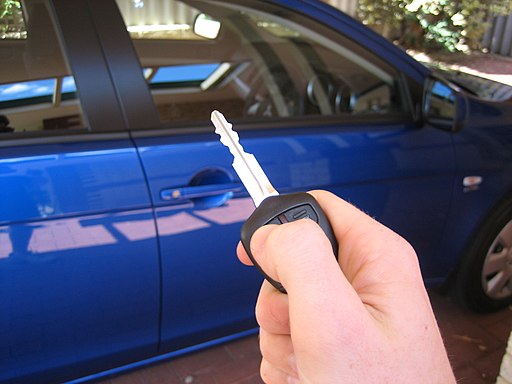 From the moment your children were born, you’ve probably looked forward to the milestone moments in their lives. The odds are good that one of those moments involved handing a set of car keys over to your teen. And in fairness, those fears aren’t unfounded: the CDC notes that teens between 16 and 19 years of age are four times more likely to get in a car accident than older drivers. Approximately 3,000 teen drivers died in car accidents in 2009 alone, and the total cost of those accidents adds up to about $26 billion annually.
From the moment your children were born, you’ve probably looked forward to the milestone moments in their lives. The odds are good that one of those moments involved handing a set of car keys over to your teen. And in fairness, those fears aren’t unfounded: the CDC notes that teens between 16 and 19 years of age are four times more likely to get in a car accident than older drivers. Approximately 3,000 teen drivers died in car accidents in 2009 alone, and the total cost of those accidents adds up to about $26 billion annually.
However, the good news for parents is that many of those accidents are preventable, particularly if parents take an active interest in preparing their children and educating them about the increased risks they face. If parents are committed to preparing for the big day when their teen receives a driver’s license, there’s no reason they shouldn’t feel confident in the decision-making abilities of their child and their child’s safety on the road.
Preparing your teen
The process of preparing your teen for the responsibilities of driving can begin well before your teen gets his or her driver’s license. Being a responsible driver and a good role model is an excellent first step for many parents. Parents can also teach their teen that driving is a privilege that can be taken away-not just by the parents themselves, but also by law enforcement.
Educate your teen by using teen driving statistics to make them aware of risks associated with driving, and don’t rely solely on a driver’s education class to teach your child how to drive. Stay involved and reinforce that training at home.
Finally, many teens benefit from signing a driving contract with their parents that lays out the rules
Preparing yourself
The best strategy parents can adopt to prepare themselves is to engage in meaningful dialogue with their child about how he or she plans to drive and what hazards to avoid. List potential driving distractions and hazards that are a particular threat to teens, such as driving a carload of friends and using cell phones while driving.
Parents can also ease into their teen’s driving agendas by declining to buy them a car immediately after receiving a driver’s license. Research has shown that teens face reduced risks of accidents when they spend their first six months of driving sharing a vehicle with a parent. Not only does this lower the risks, it also cuts down the costs parents adopt, including the up-front cost of buying a vehicle and paying auto insurance rates for a teen to have his or her own car.
Preparing your vehicle
Auto insurance can be a big financial sticking point for any family. Teens typically carry higher insurance rates than adults because the risk of an accident is so high in those first few years. Because of this high risk, it’s advisable to seek out a good policy to protect your car by purchasing comprehensive car coverage rather than just liability insurance.
After the car is properly insured, another priority is the overall safety of the vehicle. A vehicle that is in good working order will be less likely to suffer unforeseen breakdowns, which could put inexperienced teen drivers into unsafe predicaments. By taking the time to make their car safe, parents will have fewer reasons to be nervous when handing over their car keys.
Although most parents are sure to feel some nerves in the first few months of their teen’s driving, proper preparation can go a long way toward quelling those fears. Parents can help their children stay safe while driving by establishing a strong dialog and instilling a sense of trust and responsibility. With those measures in place, your teens will be well-prepared to practice safe driving habits and prove they are ready for this newfound responsibility.







